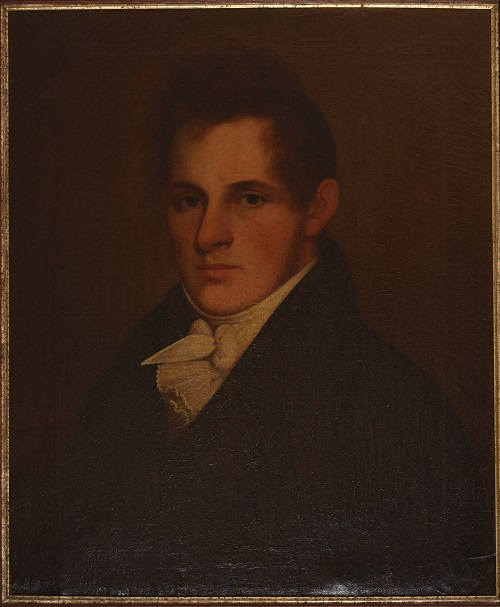1796-1853
Elijah Paine, Jr. was born on April 10, 1796 in Williamstown, Vermont. He studied at Harvard College, graduated in 1814, and completed his master’s degree in 1818. He then commenced his legal studies in the law office of Daniel Cady (father of Elizabeth Cady Stanton) in Johnstown, New York, continued to the Law School in Litchfield, Connecticut, and then at the Sedgwick law firm in New York City. After he left Litchfield and before he entered the Sedgwick law firm, Paine was an officer of the Militia and attained the rank of Captain before injury forced him to end his military career.
Following his admission to the bar, Elijah Paine worked with the distinguished legal author Henry Wheaton, whose major work was entitled the “Law of Nations.” Wheaton was also a reporter to the Supreme Court of the United States, and Paine helped him to prepare the United States Supreme Court Reports between 1816 and 1827. Separately, Paine was the reporter for “Paine’s United States Circuit Court Reports,” and in 1830 was the joint author with the Hon. John Duer, LL. D., of “Paine and Duer’s Practice in Civil Actions and Proceedings at Law in the State of New York.”
In 1850, Elijah Paine was elected a Judge of the Superior Court of New York, which office he held at the time of his death. In this capacity, the initial phase of the Lemmon Slave Case came before him, and his decision in the case displays an erudite citation of authorities, an examination of fundamental principles of law, and the constitutionality and applicability of the statute in New York. Because his decision went against the prevailing wisdom of the time, Judge Paine felt a responsibility to the owner of the slaves and, as soon as he had rendered his decision, he headed a subscription by which the owner was reimbursed the full value of the property which he had, in ignorance, forfeited to the law.
Judge Paine’s death on October 6, 1853 drew expressions of respect to his memory, not only by members of the profession but by multitudes in every rank of life. The members of the Bar of New York held a meeting under the chairmanship of Chief Justice Oakley, at which the following testimony to his character was adopted: “Resolved, [t]hat by the death of Judge Paine the Bar and the community have been deprived of a pure and upright Judge, a man of extensive learning, entire independence, mature judgment, and who faithfully performed the responsible duties of his station.”
Sources
Henry D. Paine. Paine Family Records: A Journal of Genealogical and Biographical Information Respecting the American Families of Payne, Paine, Payne &c., Volume 2 (1883).
Litchfield Historical Society. A Database of Students of the Litchfield Law School.

